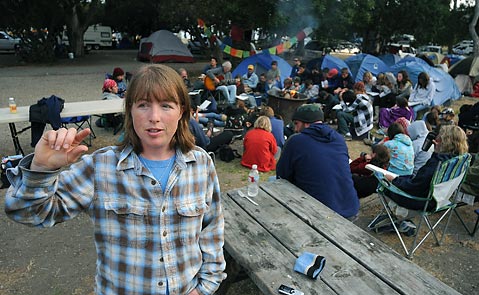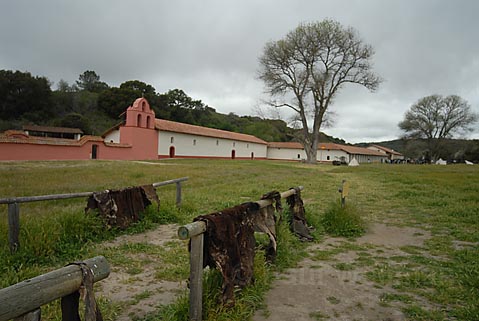Governor Considers Closing 220 State Parks to Save Money
Opponents to Proposal Warn of Potential Damage to Nearby Economies

Whether surfing at San Buena-ventura, dropping a boat in the water at Gaviota, or camping at El Capitan, state parks and beaches are a big part of the recreational life of the South Coast. County residents and out-of-town visitors alike flock to state parks-anyone who has tried to get a summer campsite reservation can attest to this phenomenon-but now, even this previously reliable recreational resource has been threatened by the state’s money problems. As Sacramento politicians scramble to work out kinks in the state’s budget, state parks have become the target of potential budget cuts. In an effort to scale back expenditures, Governor Arnold Schwarzenegger has proposed closure of 220 state parks, out of 278 total. For Santa Barbara and Ventura counties, that would mean Point Sal, La Pur-sima, Gaviota, Refugio, El Capitan, Carpinteria, Emma Wood, San Buenaventura, and McGrath state parks would padlock their gates until further notice.
“The visitors to those parks wouldn’t be able to camp there, they wouldn’t have any place to park, there wouldn’t be any restrooms for them to use, and it would impact the local economy,” said Rich Rozzelle, superintendent of the State Parks Department’s Channel Coast District. On Tuesday, June 2, legislators in Sacramento reviewed the proposed cuts in a budget meeting. The state parks system attracts 77.2 million visitors annually-1.6 million in the Channel Coast District alone-but an answer is not expected until at least mid summer.

A visit to Refugio State Park on a Tuesday afternoon revealed about 40 students and teachers from Santa Barbara Middle School resting from a long bike ride-they were scheduled to ride to Jalama the next morning. A few miles down the road, at El Capitan State Park, campers lounged in the waning evening light. “I’m concerned about the parks closing. You have a lot of older citizens traveling around-people who have worked hard their whole lives-and now they’re being penalized because of government mismanagement of funds,” said Glenda Moore, a nurse practitioner from the Bay Area taking time off to travel and camp with her husband. “I would rather see them look at their spending and prioritize to what voters are in favor of.”
Rozzelle pointed out that although the state would be saving some money on operational costs up front, it would lose out in the long run. “For every dollar spent to support the state park system, that creates $2.35 for the State of California,” he said. The parks themselves would enter caretaker status if closed, with a bare-bones crew keeping up with basic maintenance in hopes that the parks would open again in the near future. “It’s an unfortunate situation we’re in. I hope the public recognizes the value of state parks and can contact their elected officials to help out.”
If the cuts were implemented and the parks closed, rangers and lifeguards would not patrol the parks, and camping or using the parking lots would be illegal. Although fines are determined by a judge in whichever jurisdiction the violation occurred, illegal camping in a state park is a misdemeanor offense. One park employee who wished to remain anonymous said that finding encampments of transients and squatters is not uncommon. “Even if they close parks, there are still law enforcement duties. I don’t know how they would go through with [the closures], but then I’m pretty low on the totem pole,” said the employee. According to Rozzelle, the state Department of Parks and Recreation may have to enlist the help of outside law enforcement agencies to keep potentially damaging encampments from popping up on state park property.
“It’s going to have a devastating effect on the state parks themselves,” said Jerry Emory, a spokesperson for the California State Parks Association, noting that during economic downturns, parks become a safe haven for vacationers traveling on the cheap. In the meantime, surfers, boaters, campers, and others who use the parks are waiting anxiously to see what the state government comes up with.



